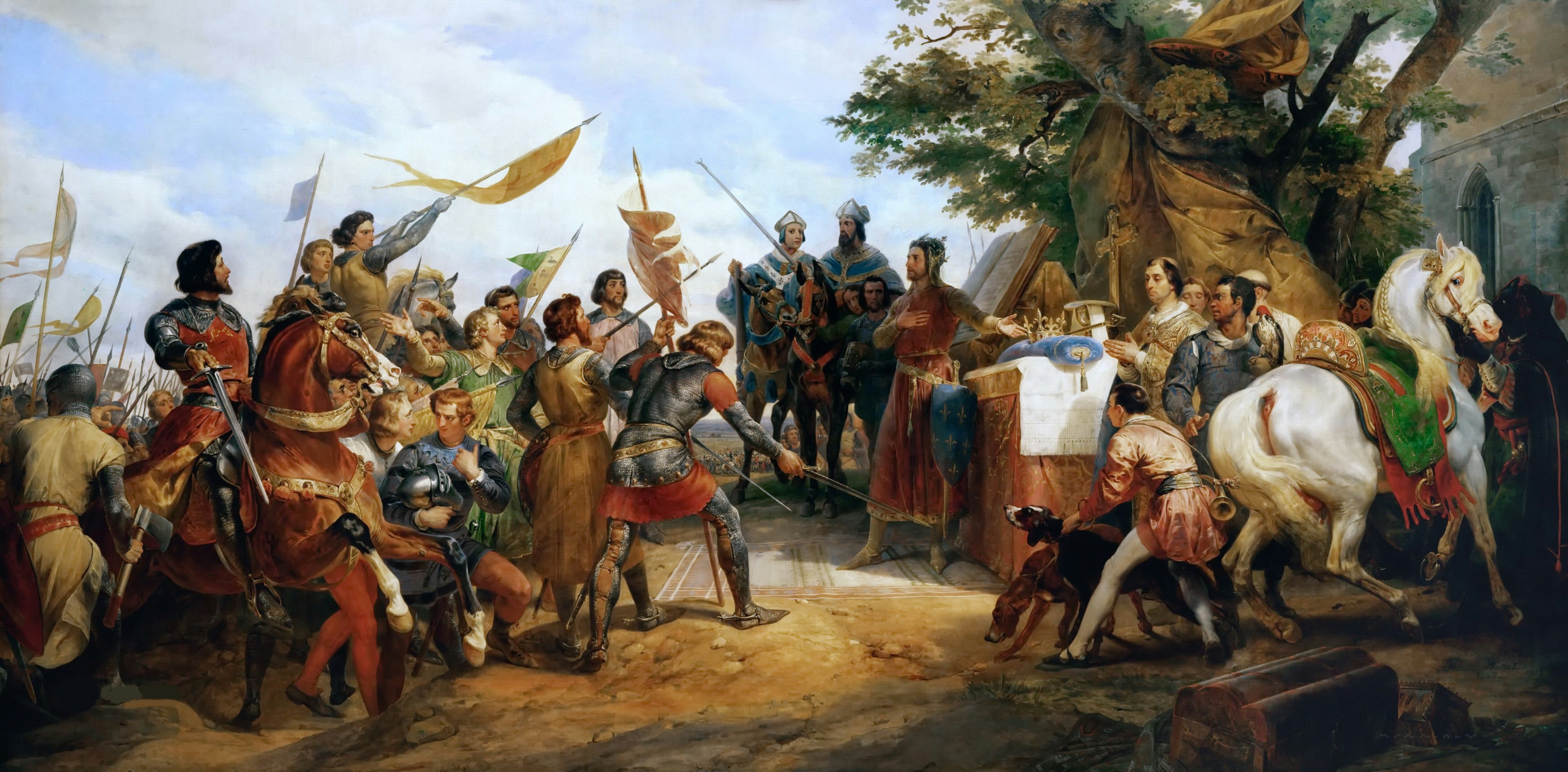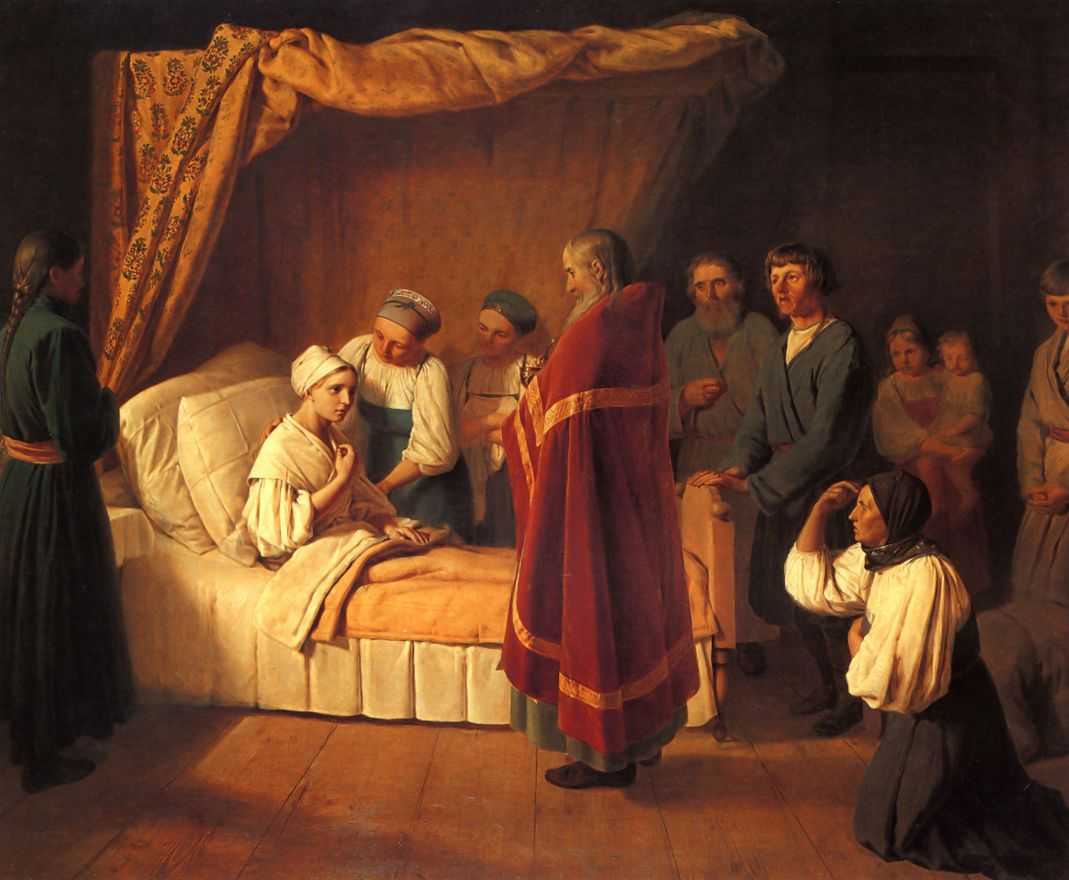|
Alberto Da Bergamo
Alberto da Bergamo, TOSD (1214 – 7 May 1279) was an Italian Catholic farmer from Bergamo and a professed member of the Third Order of Saint Dominic. He was married in his adulthood to a wife who disapproved of his generous nature to the poor before her conversion and death, and he spent his initial widowhood going on several pilgrimages to Rome as well as visits to both Spain and Jerusalem. He was beatified in 1748 after Pope Benedict XIV confirmed that there existed a longstanding local 'cultus' - or popular devotion - to the late farmer. Life Alberto da Bergamo was born in Bergamo in 1214 to modest and pious farmers. From aged seven he began fasting for half a week and foregone all the food he did not have during that time to the poor. He maintained his father's farm in Villa d'Ogna after following his father's pious and industrious example and he later married. His father had also taught him penitential practices that later fructified in his son's life. Alberto's wife made ... [...More Info...] [...Related Items...] OR: [Wikipedia] [Google] [Baidu] |
Beatification
Beatification (from Latin , "blessed" and , "to make") is a recognition accorded by the Catholic Church of a deceased person's entrance into Heaven and capacity to intercede on behalf of individuals who pray in their name. ''Beati'' is the plural form, referring to those who have undergone the process of beatification; they possess the title of "Blessed" () (abbreviation "Bl.") before their names and are often referred to in English as "a Blessed" or, plurally, "Blesseds". It is the third stage of the ordinary process of Canonization#Since 1983, official recognitions for Catholic saints: Servant of God, Venerable#Catholic, Venerable, Blessed, and Saint. History Local Bishops in the Catholic Church, bishops had the power of beatifying until 1634, when Pope Urban VIII, in the apostolic constitution ''Cœlestis Jerusalem'' of 6 July, reserved the power of beatifying to the Holy See. Since the reforms of 1983, as a rule, (for non-martyred Venerables) one Miracle, miracle must ... [...More Info...] [...Related Items...] OR: [Wikipedia] [Google] [Baidu] |
Pope Alexander IV
Pope Alexander IV (1199 or 1185 – 25 May 1261) was head of the Catholic Church and ruler of the Papal States from 12 December 1254 to his death. Early career He was born as Rinaldo di Jenne in Jenne, Italy, Jenne (now in the Province of Rome), he was, on his mother's side, a member of the house Counts of Segni, Conti di Segni, the counts of Segni, like Pope Innocent III and Pope Gregory IX. His uncle Gregory IX made him cardinal deacon and Protector of the Franciscans, Order of Franciscans in 1227, Camerlengo of the Holy Roman Church from 1227 until 1231 and Bishop of Ostia in 1231 (or 1232). On the death of Pope Innocent IV in 1254 he was Papal election, 1254, elected pope at Naples on 12 December 1254. Pontificate Alexander's pontificate was signalled by efforts to reunite the Eastern Orthodox churches with the Catholic Church, by the establishment of the Inquisition in France, by favours shown to the mendicant orders, and by an attempt to organize a crusade against the Mon ... [...More Info...] [...Related Items...] OR: [Wikipedia] [Google] [Baidu] |
Italian Dominicans
Italian Dominicans (; ) are Dominican Republic, Dominican-born citizens who are fully or partially of Italy, Italian descent, whose ancestors were Italians who emigrated to the Dominican Republic during the Italian diaspora, or Italian-born people in the Dominican Republic. The Italian community in the Dominican Republic, considering both people of Italian ancestry and Italian birth, is the largest in the Caribbean region. History There were a few hundred Italians who moved to live in "Santo Domingo" (as the Dominican Republic was then called), in the first centuries after the European colonization of the Americas, discovery of America in 1492. Most were religious, adventurers and traders. The turbulent years of Dominican independence even had a President of the Dominican Republic, Dominican president whose ancestors came from Ravenna—Francisco Gregorio Billini. Indeed, Billini was president between 1884 and 1885, and gave his resignation early after refusing to limit the free ... [...More Info...] [...Related Items...] OR: [Wikipedia] [Google] [Baidu] |
Lay Dominicans
The Third Order of Saint Dominic (; abbreviated TOP), also referred to as the Lay Fraternities of Saint Dominic or Lay Dominicans since 1972, is a Catholic third order which is part of the Dominican Order. As members of the Order of Preachers, Lay Dominicans are men and women, single or married, living a Christian life with a Dominican spirituality in the secular world. They find inspiration in the spiritual path taken by many saints, blesseds, and other holy men and women throughout the 800-year history of the Dominican Order. The Life of a Dominican layperson incorporates passion for the Word of God into the community of fellow Dominicans and the religious practices of the order. Lay Dominicans are members of worldwide provinces, bound to the governance structure of the Order of Preachers. Background Dominic de Guzmán established the ''Ordo Praedicatorum'' in 1215. There are four principal branches: * Friars - The "First Order", these are the brothers and priests who take so ... [...More Info...] [...Related Items...] OR: [Wikipedia] [Google] [Baidu] |
Dominican Tertiaries
Dominican may refer to: Religious communities * Dominican Order, a Catholic order, formally the Order of Preachers * Anglican Order of Preachers, loosely referred to as Dominicans Dominican Republic * Dominican Republic, on the island of Hispaniola in the Greater Antilles, in the Caribbean ** Dominicans ** Demographics of the Dominican Republic ** Culture of the Dominican Republic Dominica * Dominica, an island nation in the Lesser Antilles, in the Caribbean ** Demographics of Dominica ** Culture of Dominica See also * * * Dominican College (other), the name of several colleges * Dominican School of Philosophy and Theology The Dominican School of Philosophy and Theology (DSPT) is a Catholic graduate school in Berkeley, California. It is a member of the interfaith Graduate Theological Union (GTU) and an affiliate of the University of California Berkeley. DSPT ..., Berkeley, California, United States * Dominican University (other) {{disambiguatio ... [...More Info...] [...Related Items...] OR: [Wikipedia] [Google] [Baidu] |
13th-century Italian Christian Monks
The 13th century was the century which lasted from January 1, 1201 (represented by the Roman numerals MCCI) through December 31, 1300 (MCCC) in accordance with the Julian calendar. The Mongol Empire was founded by Genghis Khan, which stretched from Eastern Asia to Eastern Europe. The conquests of Hulagu Khan and other Mongol invasions changed the course of the Muslim world, most notably the Siege of Baghdad (1258) and the destruction of the House of Wisdom. Other Muslim powers such as the Mali Empire and Delhi Sultanate conquered large parts of West Africa and the Indian subcontinent, while Buddhism witnessed a decline through the conquest led by Bakhtiyar Khilji. The earliest Islamic states in Southeast Asia formed during this century, most notably Samudera Pasai. The Kingdoms of Sukhothai and Hanthawaddy would emerge and go on to dominate their surrounding territories. Europe entered the apex of the High Middle Ages, characterized by rapid legal, cultural, and religious evo ... [...More Info...] [...Related Items...] OR: [Wikipedia] [Google] [Baidu] |
13th-century Venerated Christians
The 13th century was the century which lasted from January 1, 1201 (represented by the Roman numerals MCCI) through December 31, 1300 (MCCC) in accordance with the Julian calendar. The Mongol Empire was founded by Genghis Khan, which stretched from Eastern Asia to Eastern Europe. The conquests of Hulagu Khan and other Mongol invasions changed the course of the Muslim world, most notably the Siege of Baghdad (1258) and the destruction of the House of Wisdom. Other Muslim powers such as the Mali Empire and Delhi Sultanate conquered large parts of West Africa and the Indian subcontinent, while Buddhism witnessed a decline through the conquest led by Bakhtiyar Khilji. The earliest Islamic states in Southeast Asia formed during this century, most notably Samudera Pasai. The Kingdoms of Sukhothai and Hanthawaddy would emerge and go on to dominate their surrounding territories. Europe entered the apex of the High Middle Ages, characterized by rapid legal, cultural, and ... [...More Info...] [...Related Items...] OR: [Wikipedia] [Google] [Baidu] |
1279 Deaths
1 (one, unit, unity) is a number, numeral, and glyph. It is the first and smallest positive integer of the infinite sequence of natural numbers. This fundamental property has led to its unique uses in other fields, ranging from science to sports, where it commonly denotes the first, leading, or top thing in a group. 1 is the unit of counting or measurement, a determiner for singular nouns, and a gender-neutral pronoun. Historically, the representation of 1 evolved from ancient Sumerian and Babylonian symbols to the modern Arabic numeral. In mathematics, 1 is the multiplicative identity, meaning that any number multiplied by 1 equals the same number. 1 is by convention not considered a prime number. In digital technology, 1 represents the "on" state in binary code, the foundation of computing. Philosophically, 1 symbolizes the ultimate reality or source of existence in various traditions. In mathematics The number 1 is the first natural number after 0. Each natural number, ... [...More Info...] [...Related Items...] OR: [Wikipedia] [Google] [Baidu] |
1214 Births
Year 1214 ( MCCXIV) was a common year starting on Wednesday of the Julian calendar, the 1214th year of the Common Era (CE) and ''Anno Domini'' (AD) designations, the 214th year of the 2nd millennium, the 14th year of the 13th century, and the 5th year of the 1210s decade. Events By place Byzantine Empire * November 1 – Siege of Sinope: The Seljuk Turks under Sultan Kaykaus I capture the strategic Black Sea port city of Sinope – at the time held by the Empire of Trebizond (one of the Byzantine successor states formed after the Fourth Crusade). Emperor Alexios I of Trebizond leads an army to break the siege, but he is defeated and captured. His capture forces the Byzantines to accept tributary status to Kaykaus. Europe * February 15 – John, King of England ("Lackland") lands with an invasion force (accompanied by mercenaries) at La Rochelle; many barons of England refuse to join him in the campaign. John sends his half-brother William Longespée ("L ... [...More Info...] [...Related Items...] OR: [Wikipedia] [Google] [Baidu] |
Viaticum
Viaticum is a term used – especially in the Catholic Church – for the Eucharist (also called Holy Communion), administered, with or without Anointing of the Sick (also called Extreme Unction), to a person who is dying; viaticum is thus a part of the Last Rites. Usage The word ''viaticum'' is a Latin word meaning "provision for a journey", from ''via,'' or "way". For Communion as Viaticum, the Eucharist is given in the usual form, with the added words "May the Lord Jesus Christ protect you and lead you to eternal life". The Eucharist is seen as the ideal spiritual food to strengthen a dying person for the journey from this world to life after death. Alternatively, ''viaticum'' can refer to an ancient Roman provision or allowance for traveling, originally of transportation and supplies, later of money, made to officials on public missions; mostly simply, the word, a haplology of ''viā tēcum'' ("with you on the way"), indicates money or necessities for any journey. ''Via ... [...More Info...] [...Related Items...] OR: [Wikipedia] [Google] [Baidu] |





